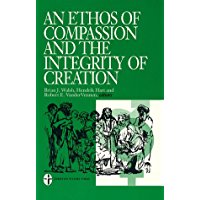-
-
[1986-2003], Institute for Christian Studies Call No: PER ARCH Availability:11 of 11 At Your Library
-
-
1975-1977, Institute for Africa Studies, Potchefstroom University for Christian Higher Education Call No: Brief cat. 06349 v.1, no. 1 (1975), v.2, no. 2, 4- Availability:10 of 10 At Your Library
-
-
2018., Institute for Christian Studies Call No: THESES c.1-2 Availability:1 of 1 At Your LibraryClick here to watch
-
-
1981, Fuller Theological Seminary and the Institute for Christian Studies Call No: BS480 .B53 1981 Availability:0 of 0
-
-
1969-1974, Association for the Advancement of Christian Scholarship Call No: PER Archives Availability:4 of 4 At Your Library
-
-
[1986], Institute for Christian Studies Call No: BD373 .V67 1986 PAMP | Availability:1 of 1 At Your Library
-
-
1999, Potchetstroomse Universiteit uiv Christelike Hoer Onderwys Call No: BR115 .P7 G6 1999 Availability:1 of 1 At Your Library Series Title: Wetenskaplike bydraes van die PU vir CHO. Reeks F: Instituut vir Reformatoriese Studie. Reeks F1: IRS-studiestukke ; Studiestuk no. 384
-
-
1990., University Press of America Call No: BR128 .G8 C47 ARCH c.2 Availability:2 of 2 At Your Library Series Title: Christian studies today
-
-
1991., University Press of America Call No: BR570 .C48 ARCH c.2 Availability:2 of 2 At Your Library Series Title: Christian studies today
-
-
1981, Fuller Theological Seminary and the Institute for Christian Studies Call No: BS480 .B53 1981 Availability:1 of 1 At Your Library
-
-
2002, Rodopi Call No: BT50 .K84 2002 Availability:1 of 1 At Your Library Series Title: Currents of encounter ; volume 19
-
-
2015., Institute for Christian Studies Call No: THESES (Ph.D.) c.1-2 Click here to read Summary Note: This dissertation develops a large-scale biblically-shaped theo-ethical narrative of power. Propelled by a liberationist commitment, this work first stands in solidarity with earth's marginalized majorities, and then focuses its lens on the social location of "middle agents." In the global economic/power structure, middle agents (the eighteen percent) live and work in the space between the two percent who own over half the world and the eighty percent who earn less than ten dollars per day. The method is constructive. The work develops a scriptural narration of power that starts in creation, moves through the fall(the first act of commodification), and into violence, empire and the demonic. The central part of the project concentrates on the particular predicament of middle agents in complex globalizing regimes. Staying close to the gospel (particularly Luke and Mark), in the second half, an ethic of hospitality is developed one that rearranges power structures, moving practitioners personally, communally, and societally toward a world of shared power. The story of power closes with a reading of apocalypse as the falling away of parasitic and violent structures, and the emergence of new creation on earth. The academic approach is interdisciplinary. At each stage, relevant academic conversations are engaged in biblical studies (e.g. Ellen Davis, Terence Fretheim, William Herzog, Richard Horsley, Sylvia Keesmaat, Catherine Keller, J. Richard Middleton and Ched Myers), liberation theology/praxis (e.g. James Cone, Ada Maria Isasi-Diaz, Gustavo Gutiérrez, Martin Luther King Jr., Kwok Pui-Lan and Letty Russell), and social theory (e.g. Hannah Arendt, Jacques Derrida and Michel Foucault).
-
-
2015., Institute for Christian Studies Call No: THESES c.1-2 Click here to read Summary Note: C.S. Lewis is perhaps as well known for his life story as his literary accomplishments. Central to that narrative is his shocking conversion from atheism to Christianity. Despite this Surprised by Joy, Lewis's primary work on the subject, has not been the centre of a focused study. This thesis reveals that, prior to writing Surprised by Joy, Lewis developed a growing appreciation for how experiences and story factored in religious belief. Rather than focusing on arguments, Surprised by Joy tells the story of how Lewis came to terms with his fundamental experiences of the world. Tension between these experiences and his worldview drove Lewis onward until they were reconciled by his acceptance of The True Myth. Using Vollenhoven's Reformed Philosophy, I show the implications of Surprised by Joy: that the stories we feel ourselves to be living in circumscribe our experiences and knowledge, and that conversion involves coming to inhabit the biblical story.
-
-
c1993, University Press of America Call No: LB1715 .E28 c.1-3 Availability:3 of 3 At Your Library Series Title: Christian studies today
-
-
2013, Verloren Call No: B52.65.V75 W65 2013 Availability:1 of 1 At Your Library Series Title: Passage reeks ; 41
-
-
1995., University Press of America Call No: BT78 .E74 c.1 Availability:4 of 4 At Your Library Series Title: Christian studies today
-
-
1981, Fuller Theological Seminary and the Institute for Christian Studies Call No: BS480 .B53 1981 Availability:0 of 0











